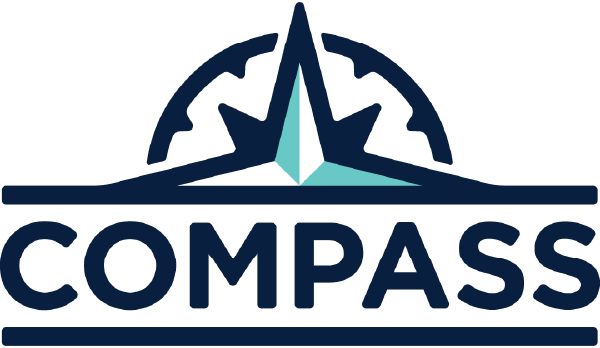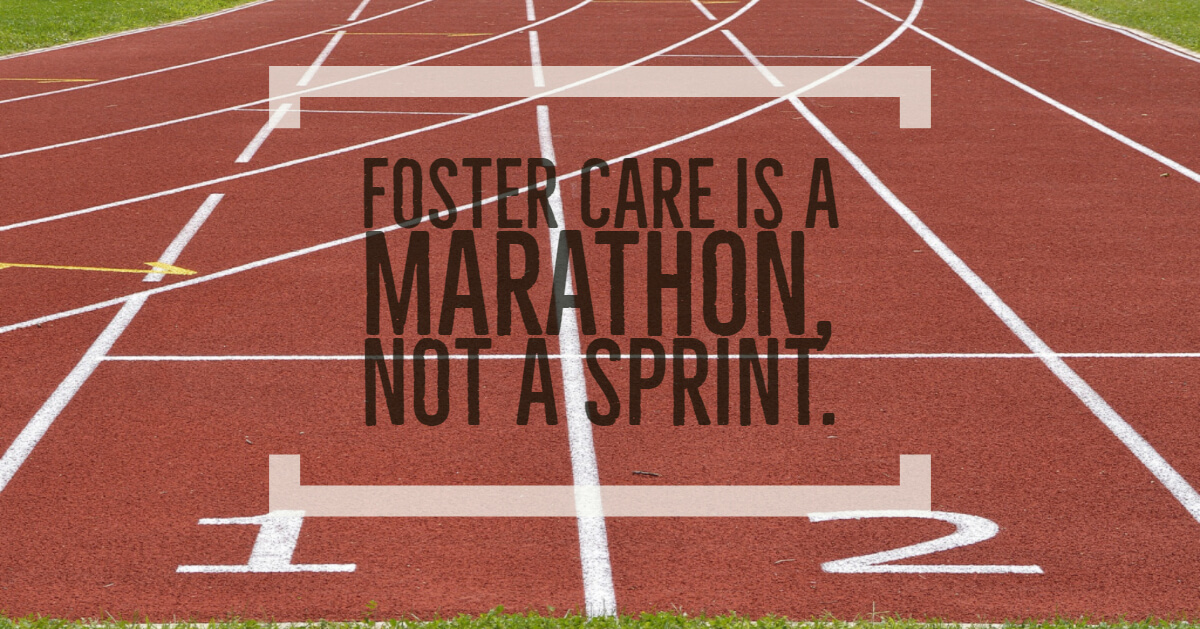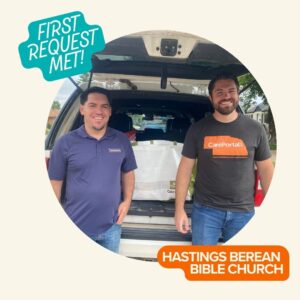Foster Care is not a Sprint
A few years ago (I’ll decline to tell you exactly how many) I set a goal to run a marathon (yes, the full 26.2 miles) before I turned 30 years old. I had run several half-marathons, so the natural progression was to run the full 26.2. It was an ambitious goal based on pride and a desire for greatness. But training and running that marathon was life changing. The lessons learned pounding the pavement taught me a lot about life and who I am.
 About two years after accomplishing this goal, I was met with another goal: foster parenting. I think that the beginning of my foster parent journey was much like the beginning of my marathon training. Truthfully, I had the desire to do something great and something hard. Something that everyday people just don’t normally do.
Two years into the foster parenting journey, and I have begun to realize how similar foster parenting is to training for and running that marathon. The marathon, in a way, prepared me to be a foster parent.
Here are 10 ways that being a foster parent is just like running a marathon:
About two years after accomplishing this goal, I was met with another goal: foster parenting. I think that the beginning of my foster parent journey was much like the beginning of my marathon training. Truthfully, I had the desire to do something great and something hard. Something that everyday people just don’t normally do.
Two years into the foster parenting journey, and I have begun to realize how similar foster parenting is to training for and running that marathon. The marathon, in a way, prepared me to be a foster parent.
Here are 10 ways that being a foster parent is just like running a marathon:
 You don’t have to run a marathon or be a foster parent to make a difference for children in foster care. Sign up for the 5th Annual Superhero Dash (5k and 1 mile) and be a hero for children and families! Dress as your favorite superhero and join us- June 30th at the Kearney Archway.
Written by Savannah Lyon, Compass Foster and Adoptive Parent
https://savannahlyon.com/
You don’t have to run a marathon or be a foster parent to make a difference for children in foster care. Sign up for the 5th Annual Superhero Dash (5k and 1 mile) and be a hero for children and families! Dress as your favorite superhero and join us- June 30th at the Kearney Archway.
Written by Savannah Lyon, Compass Foster and Adoptive Parent
https://savannahlyon.com/
 About two years after accomplishing this goal, I was met with another goal: foster parenting. I think that the beginning of my foster parent journey was much like the beginning of my marathon training. Truthfully, I had the desire to do something great and something hard. Something that everyday people just don’t normally do.
Two years into the foster parenting journey, and I have begun to realize how similar foster parenting is to training for and running that marathon. The marathon, in a way, prepared me to be a foster parent.
Here are 10 ways that being a foster parent is just like running a marathon:
About two years after accomplishing this goal, I was met with another goal: foster parenting. I think that the beginning of my foster parent journey was much like the beginning of my marathon training. Truthfully, I had the desire to do something great and something hard. Something that everyday people just don’t normally do.
Two years into the foster parenting journey, and I have begun to realize how similar foster parenting is to training for and running that marathon. The marathon, in a way, prepared me to be a foster parent.
Here are 10 ways that being a foster parent is just like running a marathon:
- It’s for the crazy people. I’m just going to start with the obvious. People think runners are crazy. Why would anyone want to go out and run for hours and hours? Don’t they know how much it hurts? Runners KNOW they are crazy and celebrate it! Being a foster parent is similar. There are definitely the stereotypical large families that drive a buss as their normal means of transportation (I know and love at least three of these families). But more than that, just being willing to be flexible in handling the seemingly unbelievable demands from social services, the chaos brought when entering the world of the children’s biological families, and helping children from hard places through their difficult behaviors makes you kind of crazy.
- It requires pure stubbornness. Sometimes on those long, hard runs when it is cold and windy, or hot and windy, you have to just keep going. It has to be a framework in your mind that you just aren’t going to give up. For me, it felt like there were too many people watching to just quit, so I had to keep going no matter what. Foster care is a lot like that, too. There are stretches of the journey that are just plain difficult. Events occur that bring injury to you personally. It hurts to love a child and then lose them from your arms. Other times the process exploits your own weaknesses or past injuries. It would be really easy to give up, but the stakes are too high. It is too important that you don’t quit.
- It will require sacrifices because it is a lifestyle change.
 When you are training for a marathon it requires a lot of time and dedication. You have to eat foods that support your training needs, drink water and avoid food that will slow you down. You have to go to bed early enough so you can get up early, especially on long run days. It means spending less time with friends and family so you can go out and train. As a foster parent, I quickly learned how much my life was going to change. Groups that I enjoyed being a part of, even as a leader, I found I didn’t have time for and the energy that I was investing into those activities was detracting from the energy I needed for my children. The friends that I began to spend a lot more time with were also foster parents. With children from hard places, it’s just not easy to run out to eat or to have a lot of extra activities. Your lifestyle changes considerably because the child you are caring for has extra needs. Foster care is not just adding a child into the mix of what is already happening in your life. It requires a major shift to adjust for the needs that child and his/her family need.
When you are training for a marathon it requires a lot of time and dedication. You have to eat foods that support your training needs, drink water and avoid food that will slow you down. You have to go to bed early enough so you can get up early, especially on long run days. It means spending less time with friends and family so you can go out and train. As a foster parent, I quickly learned how much my life was going to change. Groups that I enjoyed being a part of, even as a leader, I found I didn’t have time for and the energy that I was investing into those activities was detracting from the energy I needed for my children. The friends that I began to spend a lot more time with were also foster parents. With children from hard places, it’s just not easy to run out to eat or to have a lot of extra activities. Your lifestyle changes considerably because the child you are caring for has extra needs. Foster care is not just adding a child into the mix of what is already happening in your life. It requires a major shift to adjust for the needs that child and his/her family need. - Know your supports. While training for the marathon, I had another friend who was training as well. We often scheduled our runs together so that we could train for at least part of the morning together. Those miles were by far the easiest. I located pit stops on the trail to help motivate me, but also to meet my physical needs. I needed my family to help watch my child during long runs, and I needed professional help to treat my injuries. During the race, I was encouraged by the crowds at the beginning cheering everyone on, but the last six miles when everything hurt and I had depleted all of my resources, I was so grateful for my dad and sister who jumped in and ran with me, even in their
 flip flops. I really could not have done it without them. Likewise, in the foster care world, I need people who can give me a break, provide encouragement, and others who can come alongside me to cheer me on, offer support, or teach me new skills to make me a better parent. Sometimes, I need professional support. I have a foster care specialist and a caseworker, but sometimes foster parents also need therapeutic support, especially when parenting children with attachment disorders. The foster care journey is also impossible without a team of supports in place.
flip flops. I really could not have done it without them. Likewise, in the foster care world, I need people who can give me a break, provide encouragement, and others who can come alongside me to cheer me on, offer support, or teach me new skills to make me a better parent. Sometimes, I need professional support. I have a foster care specialist and a caseworker, but sometimes foster parents also need therapeutic support, especially when parenting children with attachment disorders. The foster care journey is also impossible without a team of supports in place. - Take breaks/refreshment every time it is offered. A really important part of running is actually rest days. Even if those rest days are spent training other muscles, it is important to take days off from running. Not doing so will lead to injury, make you slower, and burn you out mentally as well. During the race, runners are advised to take water or sports drinks every time it is offered, whether you feel like you need it or not. Foster parents often feel guilty for taking breaks or receiving help from others. Compass provides a free night of respite, Foster Parent Night Out, once a month to its foster parents. This might be the only night I get to just be by myself without having to do things for other people. Using friends to babysit often gives you the strength that you need to just keep going. Taking breaks from your children actually makes you a better parent. Additionally, if you have friends or family who are willing to come help you clean, mow your lawn, do laundry or provide a meal, TAKE IT. This is their contribution to the hard work of foster care.
- It requires training and constant learning. Running a marathon doesn’t mean just going out one day and running 26.2 miles. You begin with slow, short runs and alternate with longer runs, hills and high intensity intervals. On days off from running, it is necessary to stretch and lift weights. While training for the marathon, I constantly read blogs from other runners and learned about how my body worked and what it needed to be more successful.
 Being a foster parent also requires training and constant learning. Before taking placements, you have to go through hours of classes. While you are parenting children from hard places, you should also be constantly learning about what each child needs and how you can care for them more effectively. I read blogs from other foster parents and professionals all the time. Constantly learning and becoming better is essential to being a good foster parent.
Being a foster parent also requires training and constant learning. Before taking placements, you have to go through hours of classes. While you are parenting children from hard places, you should also be constantly learning about what each child needs and how you can care for them more effectively. I read blogs from other foster parents and professionals all the time. Constantly learning and becoming better is essential to being a good foster parent. - It will be painful. I trained through injuries to complete the marathon. I had shin splints and ankle pain. Your hamstrings and quads often hurt during training, and certainly during and after the race. Many runners lose toenails (and use it as a bragging right. Who isn’t a real runner that hasn’t lost a toenail?) Sometimes runners fall and get road rash or twist ankles, or any other sort of physical pain. Foster parenting usually doesn’t cause muscle-skeletal issues, but it is very painful. Saying good bye to a child you have loved with your whole heart, one you have raised since birth or helped to work through abuse and neglect just hurts. It really, really feels like your heart is breaking, but there is no ice pack for your heart. Working with biological families in their struggles of sin and abuse and just not able to overcome those to get their children back home… that is excruciating. Watching a parent’s rights be severed from their child is gut wrenching. Walking with a child through the extreme loss of their own family-by-blood hurts more than you would ever believe.
- Quiet Humility. As I was training I talked a lot about running with my friends and on Facebook. I created my own hashtag, and I was really excited about it. I was also really proud of what I was trying to do. After the race, I really didn’t have a lot to say about it. It took me a lot longer than I wanted it to, and people a lot older than me finished much sooner. Yeah, I did it, but I didn’t feel like Rocky climbing the stairs when I was done.
 I was tired, and I was marked by the pain that the whole endeavor put on my body. More experienced foster parents have learned that foster parenting is really similar to that. At the beginning of my foster parent experience I was also really proud about what I was doing and I knew that it was important. I shared things on social media that others found encouraging in their journeys or even inspired them to become foster parents themselves. As time wore on, I experienced pain that couldn’t be solved with a Facebook post. The journey got ugly and it felt more like a battlefield some days. Even though our family is working toward adoption, a beautiful thing that displays God’s redemption in each of our own lives, I understand now more than ever before the pain that was endured on the cross so that we all could be adopted as children into God’s family. Severing the parent’s rights wasn’t met by cheers and a party, it was met with deep sorrow and the dread of telling my son that he would say good bye to his parent. All of this leads you to quietness and a deep understanding of how unworthy and ill-equipped you really are.
I was tired, and I was marked by the pain that the whole endeavor put on my body. More experienced foster parents have learned that foster parenting is really similar to that. At the beginning of my foster parent experience I was also really proud about what I was doing and I knew that it was important. I shared things on social media that others found encouraging in their journeys or even inspired them to become foster parents themselves. As time wore on, I experienced pain that couldn’t be solved with a Facebook post. The journey got ugly and it felt more like a battlefield some days. Even though our family is working toward adoption, a beautiful thing that displays God’s redemption in each of our own lives, I understand now more than ever before the pain that was endured on the cross so that we all could be adopted as children into God’s family. Severing the parent’s rights wasn’t met by cheers and a party, it was met with deep sorrow and the dread of telling my son that he would say good bye to his parent. All of this leads you to quietness and a deep understanding of how unworthy and ill-equipped you really are. - It takes a lot longer than you think it will. I started training for the marathon about 9 months before it was scheduled. Honestly, that wasn’t enough time. I could have been in better shape and I should have dealt with my injuries before I started. All of this meant that it would take me a total of six hours to run 26.2 miles. That is a very long time. The crowd had gone home, many of the water stations were shut down and it was much hotter than it had been at the beginning of the day. I was really hoping to run it in closer to 5 hours, but it just took longer. Everything about being a foster parent takes a long time. Training is long, licensing is long, the hours of waiting for a placement are long. The process of a case takes a very long time. It is not any one particular person’s fault, but just the tragedy of the system at work. Molding children’s behavior through their hurt and abuse also takes time. It is a very slow process.

- It is worth it. Being able to say that I have ran a full marathon is totally worth it. According to some statistics, between .5 and 1% of the population have run a marathon. It is incredible to be a part of such a small percentage of people. Even on the worst days, I can look back and say, I did that. And that’s pretty incredible. Being a foster parent is worth it on a whole other level. One thing is that I have a much bigger family than I would have otherwise. I have teen daughters (who are now in their 20s and have their own children) who love to reconnect and tell me about their lives. I am adding a son to my family. He is funny and loving and so forgiving. But more importantly I am giving him a place to belong. A place where he will always be safe and taken care of. Even on the hardest days when I feel like giving up, I remember that this journey is worth it because it makes an impact in the lives of others far beyond me.
 You don’t have to run a marathon or be a foster parent to make a difference for children in foster care. Sign up for the 5th Annual Superhero Dash (5k and 1 mile) and be a hero for children and families! Dress as your favorite superhero and join us- June 30th at the Kearney Archway.
Written by Savannah Lyon, Compass Foster and Adoptive Parent
https://savannahlyon.com/
You don’t have to run a marathon or be a foster parent to make a difference for children in foster care. Sign up for the 5th Annual Superhero Dash (5k and 1 mile) and be a hero for children and families! Dress as your favorite superhero and join us- June 30th at the Kearney Archway.
Written by Savannah Lyon, Compass Foster and Adoptive Parent
https://savannahlyon.com/





Comments (2)
Fostering Services
Fostering child is always like a marathon where you need 1st position what ever you facing difficulties during this period, it’s not only about you but it’s about someone’s future who completely depending on you. Your responsibilities to help your foster child all as dreams come true.
Ellen Hughes
You got me when you said that you have to go through hours of classes to make sure that you’ll learn to effectively care for your foster children. My husband and I want to be foster parents. We don’t have a child, and we want to share what we have with other children who are in need. I will make sure that we’ll undergo training to become qualified foster parents.